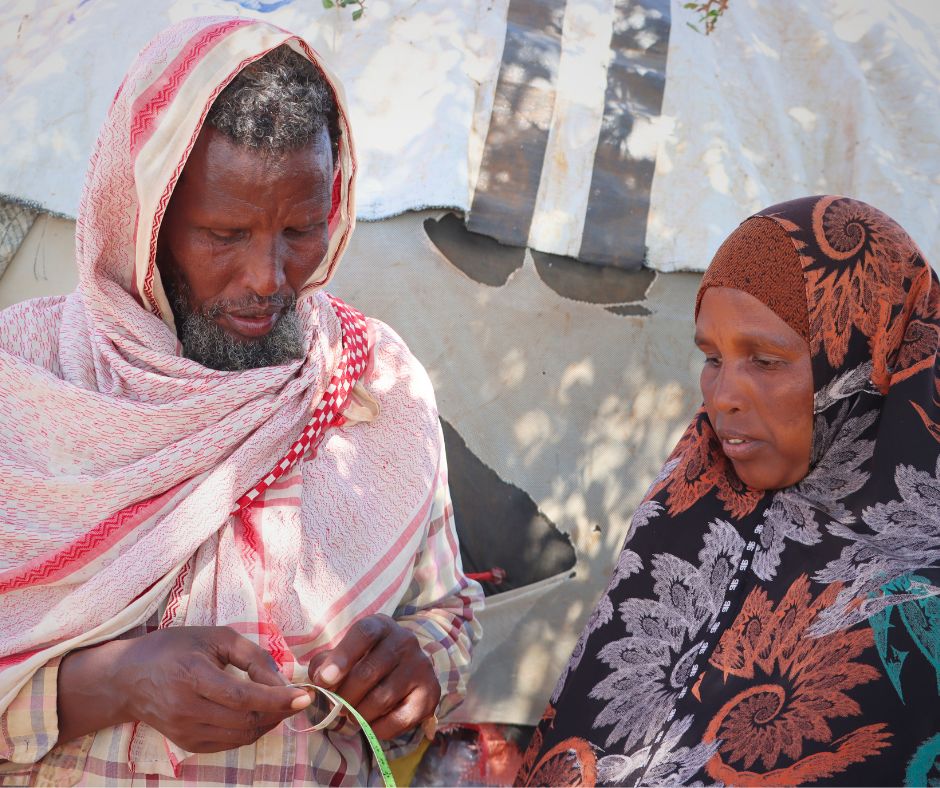Iqra Ibrahim Abdi was tormented by what her youngest daughter, Suldano, was undergoing. When Suldano stopped walking and grew too weak to play, Iqra feared the worst. The family had already lost their herd to drought in Middle Shabelle and fled to Xariir IDP camp in Banadir, where dust filled the air and the brittle earth cracked under their feet.
Khalid, her husband, earned only irregular wages, leaving them to survive on a single meal most days. “Most days we could only afford one meal,” Iqra recalls. “I watched my children lose weight. My youngest daughter became very weak. She could not walk or play like other children her age. I feared she would not survive.”
Somalia continues to face multiple crises. The effects of El Niño have brought both floods and droughts, destroying crops, livestock, and livelihoods. Children under five are hit hardest. Recent assessments show acute malnutrition has reached serious and critical levels, surpassing the global emergency threshold of 15 percent, with displaced families the most affected.
In July 2025, health workers screened 30-month-old Suldano and found her severely malnourished. With a MUAC of just 10.3 cm, she was referred to the Ala Fuuto mobile clinic, operated by Youthlink in partnership with Concern Worldwide through the CaafimaadPlus consortium. The clinic is part of the British Embassy Mogadishu–funded Integrated Emergency Life-Saving Health, Nutrition, WASH, and Protection Support project, delivered by nine international and local partners.
At the clinic, she was admitted to an at outpatient treatment program, receiving ready-to-use therapeutic food and essential medicines. Iqra attended infant and young child feeding sessions to strengthen care at home.
“We saw how quickly she responded to treatment,” explains Fadumo Ali, a Concern Worldwide nurse. “Week after week, her energy returned. She smiled more, and soon she could stand and play again. For us, seeing a child like Suldano recover is the best reward for our work.”

The integration of services meant that while Suldano was treated for malnutrition, other needs were also covered, including immunization, antenatal care, and referrals for severe cases. Community health workers followed up at home, while simplified approaches like Family MUAC allowed more families to detect malnutrition early.
Over a nine-week period, Suldano recovered. By early September, her MUAC had risen to 12.7 cm, she had gained more than 2.5 kilograms, and she was discharged in good health. “She has her strength back and a smile that never leaves her face. I once feared the worst, but today she has a future because of this care,” said a hopeful Iqra.
The impact extends beyond Suldano’s recovery. Between April 2024 and August 2025, CaafimaadPlus partners, working with government agencies, reached more than 972,000 children with malnutrition services across 23 districts.
To build on these gains, it is vital to scale up Family MUAC nationwide and fund additional mobile clinics. This would ensure that even the hardest-to-reach families can access lifesaving care.
For families like Iqra’s, these interventions mean more than survival. They give children the chance to grow, play, and look toward a future free from hunger.







